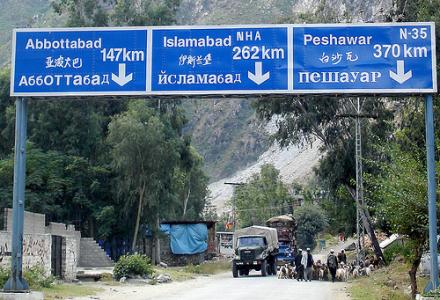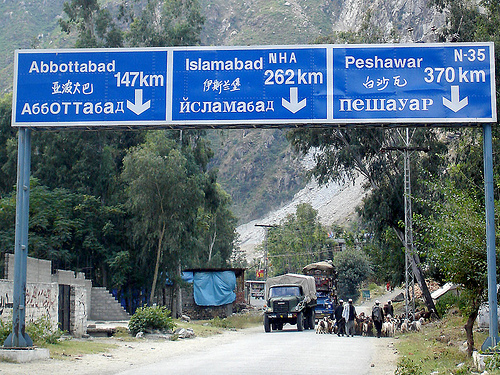
When Americans hear about violence in Pakistan, they think mostly of the Taliban or of jihadis on the Kashmir border. But the single greatest threat to Pakistan right now is a third insurgency: of ethnic separatists in the Baloch province, who have been pushing for secession for years.
Balochistan is home to Pakistan's gas reserves and the rest of the country receives power from the region at discounted rates. Pakistan's 1973 constitution provided for Balochistan to get a large share of the revenue from its gas reserves, but each year, the government finds a way to avoid making the payments. That's the key grievance that ethnic radicals exploit in recruiting the wider population of the province to their cause.
[The outrage over natural resources has now blossomed into a general suspicion of federal development projects: while attracted to the economic growth such projects might bring, local leaders worry that these benefits, like the gas revenues, will never leave the capital.]
In recent years, the ethnic Pashtun population in the region has also grown disillusioned with the federal government over its alliance with the United States and the Predator drones that the U.S. army uses to target militants. That's led them to overcome a historic rivalry with the ethnic Baloch, so that the province as a whole is increasingly unified around the idea of separation.
Finally, as a largely Punjabi army fights back against the separatists and uses unpopular and in some cases truly inhumane tactics, that too becomes a rallying cry.
This week, the embattled government announced its proposal for a settlement with Balochistan that includes withdrawal of the army from the war zones; investigation into the tactics the government used in cracking down on radicals; release of Baloch political prisoners; local veto rights on mega-development projects; and a renewed commitment to deliver on revenue sharing.
As often happens with peace offerings, the federal government's proposal pleases no one. Baloch leaders claim it's still not enough, while the military and federal nationalists from other provinces balk at giving in to Baloch demands.
I had a chance to discuss the settlement, before it was announced, with some of the key negotiators to understand their thinking, and last night, I sat down with a group of businessmen as they berated a federal politician about what they see as the most controversial points—the withdrawal of the armed forces and the resource revenue sharing.
What bothers the businessmen about the resource revenue sharing is that, even if the state did commit to hand over the money thirty years ago, the separatist sentiment in Balochistan is now so pronounced that giving into this demand won't matter. Soon, they warned, the Balochis will want more. Secondly, they felt it was hypocritical for the army to retreat from Balochistan in exchange for peace but not to cut a similar deal in the frontier with the Pakistani Taliban and other terrorists.
When I talked to the politicians involved in crafting the settlement, they anticipated both those complaints. On resource revenue, they argued that even if handing over the 1973 payments doesn't end the violence, it contributes to the government's credibility by showing fealty to the rule of law. That's critical in a state where several leaders are now under attack for attempts to brush corruption under the table during the Musharraf years.
On withdrawing the armed forces, the response is more complicated. The war in the frontier is justified, the government says, because the military is intervening to catch individual criminals (terrorists), NOT to subdue and suppress the local population. Moreover, it's clear from the success in Swat valley this spring that when they do kill and capture individual terrorists, violence subsides, even if temporarily. Conversely, in Balochistan, the military has killed popular leaders, which has only inflamed the separatists, and seems to be in Balochistan simply to fight against those who don't want them to be there. As one politician said to me, "it's too circular to make sense."
Right now, the proposed deal looks like it will face serious challenges to implementation. But the distinctions between the two wars in western Pakistan are crucial for US observers trying to work out America's Pakistan policy. And the distinctions between Islamabad's strategy in Balochistan and the Frontier are crucial for US policymakers trying to decide between counterterrorism and counterinsurgency in Afghanistan.




